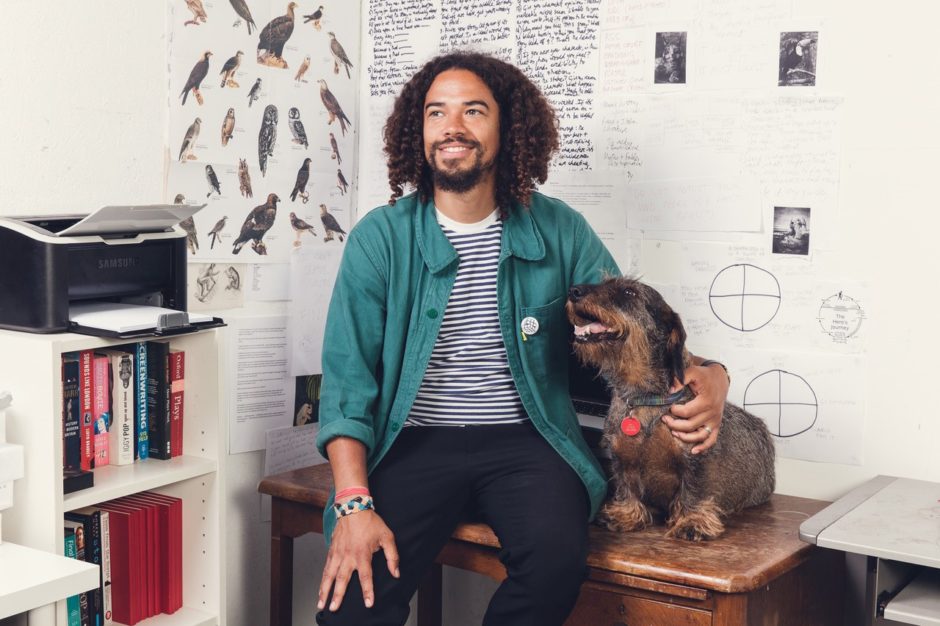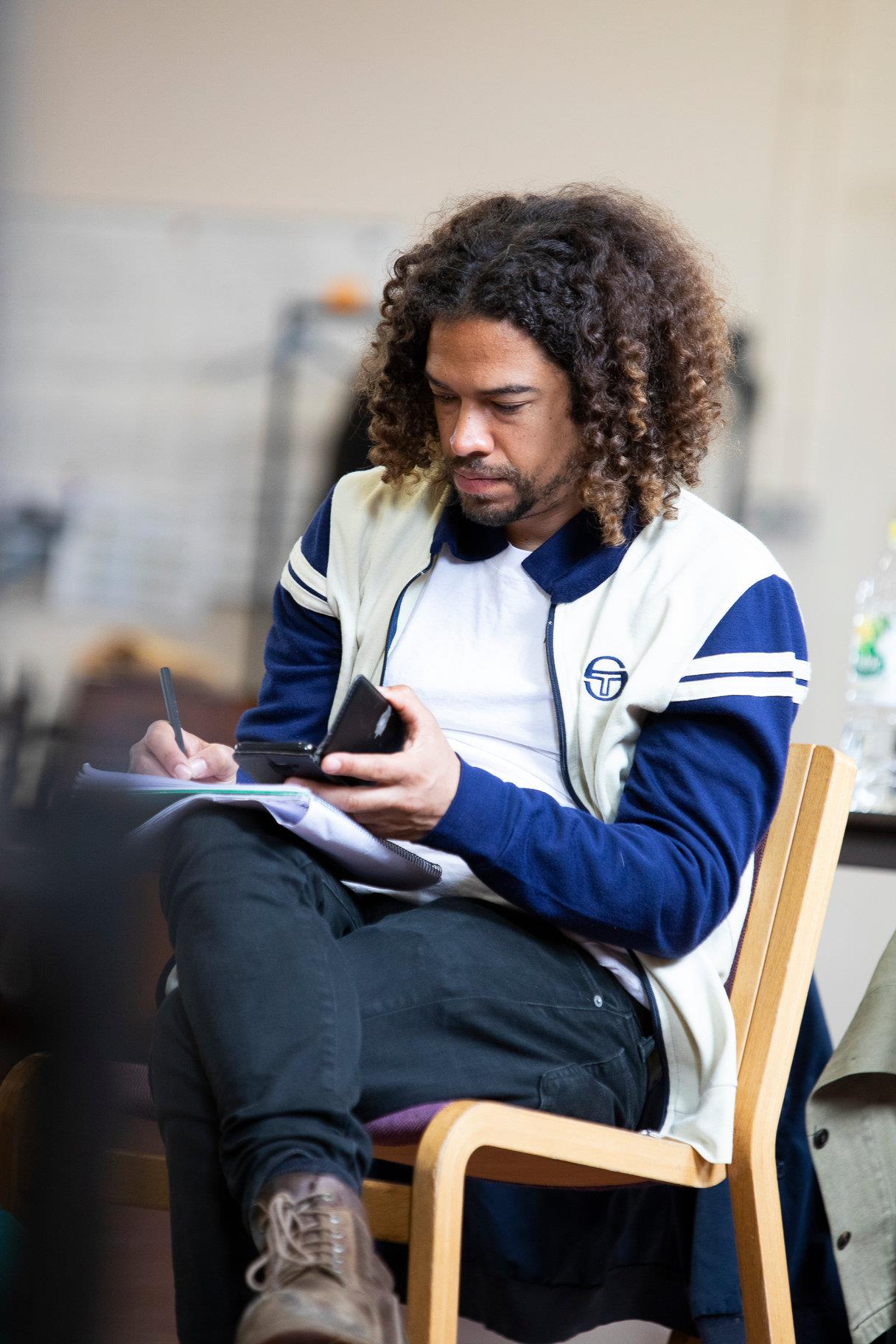CROOKED DANCES: ROBIN FRENCH TALKS ABOUT THE COMPELLING PLAY
Crooked Dances tells the story of Katy, a journalist in her 30s who is sent to interview a famous classical pianist called Silvia de Zingaro. The interview doesn’t go as she had hoped, but leads her to some revelations, which concern the French composer Erik Satie.
Written by the multi-talented writer and musician Robin French; he tells us more about the idea for the play, co-writing hit BBC Three series Cuckoo and playing live on stage at Glastonbury.
Where did the idea for the play first originate?
For me, plays usually start with an image or a sound that my mind fixes on – that’s the place I explore from. With Crooked Dances, I was on a train and I’d made a random Spotify playlist of music I hadn’t heard before. The second of the Danses de travers (Crooked Dances) from Satie’s Pièces froides came on. I had a very strange moment with it – I knew that somehow there was a secret in that piece of music.
Crooked Dances takes much of its inspiration from the music of avant-garde composer and pianist Erik Satie. How familiar were you with his music before writing this play and how does his influence weave its way through the story?
I already knew I responded to Satie’s music – but, falling in love with the Pièces froides made me explore further into his biography. I always love the connection between the biography of a musician and their music. Satie was a charmingly mysterious man – so profoundly lonely and eccentric but playful and ironic too, almost flippant. The man is in the music. I was intrigued to find he had connections to magic societies that were very popular in the 1890s.
What else has influenced and/or inspired your thinking around the production?
I had become a fan of Philosophy Bites, the brilliant podcast with Nigel Warburton. I don’t really come from a philosophy background, my degree was much more literature focused, but I became interested in Henri Bergson, the French philosopher, and was amazed to find out that he drank in the same bar as Erik Satie.
I also became obsessed by certain interviews with classical pianists from the Desert Island Discs archives. I find it fun that the play is in some ways circumspect about the digital age, while a lot of the research that led to it couldn’t have happened without the digital age…
As an award-winning screenwriter and playwright, your CV spans multiple genres including sit-com, film, theatre and TV serial. What – would you say – are the particular challenges and rewards of writing for the stage compared to other genres?
A TV script has to be half an hour or an hour. When you start to write a play, you don’t know what length it’s going to be, and that’s an exhilarating freedom, I think. A play can find its own length, and be whatever it wants to be.
For me, theatre has a special magic because of the contract between the audience and the show. As an audience member, you need to do a lot of active pretending, and you’re doing that with the people beside you. And the actors are imagining alongside you. You construct the illusion together. I think that communal act of imagination means theatre can reach interesting places TV and film possibly can’t.
Your first play, Bear Hug, won the Royal Court Young Writer’s Festival and was subsequently produced by the Royal Court. Based on your own experience, what advice might you give to prospective playwrights looking to break into the industry?
Just write, and then carry on writing. As a writer, you’re somebody who is going to write multiple pieces, so it’s important not to just think you’re the first thing you write – because that can hurt your progress.
I first got excited about new theatrical writing when my friend, Jennie Fellows, took me to see some Royal Court shows and told me about their Young Writers’ Festival. That was the impetus for writing Bear Hug. I’d really recommend their Young Writers’ programme. I did it after Bear Hug, and I was lucky enough to be taught by Simon Stephens who was a brilliant teacher – but to get on it first you need to write something…
As a theatre, the RSC has a strong tradition of nurturing and developing new writers. How have you found the experience of working with the RSC Literary Team on the development of this play and what, exactly, did this entail?
You could say I only wrote this play because of the RSC Literary team. Before Crooked Dances I’d been writing a lot of Cuckoo and I’d started to feel blocked in my theatre writing. So, I went to Pippa Hill (RSC Head of Literary), and essentially said: “Would you help unblock me?”
I can’t sing the praises of Pippa highly enough. She broke my block by telling me to go away for a week, and write something. She gave me I think six rules that the play had to obey. I went to stay at my friend Clara’s cottage in Cambridgeshire, with my dog and my buddy Neil who’s writing a novel, and I wrote half of this play. So that was the start…
Pippa’s notes were invaluable through the process, she’s extraordinarily intuitive. I can’t really credit her enough for this play existing. She’s amazing.
As a screenwriter, you’re perhaps best known for co-writing the hit BBC Three series Cuckoo with long-term writing partner Kieron Quirke, which ran for five series and was ranked as BBC3’s biggest rating comedy launch. Did you ever anticipate that the show would be such a phenomenal success?
No! Looking back, I’m amazed that in 2012, Kieron and I wrote a script that got Greg Davies and Andy Samberg attached, not to mention the rest of the cast who were glorious. And then to get Taylor Lautner and Andie MacDowell too… surreal.
As soon as Greg read the character of Ken, our entire idea of the show changed. There is just no comparable comic flavour to Greg Davies. And when Greg and Andy got in the same room, that was incredibly exciting. That’s when Kieron and I looked at each other, thinking: “this could be alright!”
You come from Edgbaston yourself, can you tell us a bit about your background and growing up there? What are the great things about Birmingham/the West Midlands that you most remember?
I wrote Cuckoo with Kieron, a friend from school who I met writing on the school newspaper, and I was also in a school band with my friend Ben (Mr Hudson). In my mid-twenties, I was also the bassist in Ben’s band, Mr Hudson and the Library – we supported Amy Winehouse, played Jools Holland and opened The Other Stage at Glastonbury. So, those two things in my life existed in collaboration with these very talented, close friends from my teens. That was lucky!
Beside from Crooked Dances, what other projects are you currently working on?
Well, I’m loving songwriting and singing with my new band Sugarcane. It’s a sort of mash-up between samba, calypso and indie. Our first single featured the awesome actress Antonia Thomas, and has racked up over 70K hits on Spotify.
I’m also busy writing some television projects on my own, and I’ve got a play called Rebel Music at the Birmingham Rep in September, which is about music, race and politics in late 70s Birmingham. I’m really excited by that one – it’s got a brilliant director Alex Brown and a marvellous young cast.
How has growing up in Birmingham both impacted upon and influenced your writing?
Before Cuckoo, Kieron and I used to try and set scripts in Birmingham – and people said don’t do that because setting things in Birmingham could endanger a script’s chances. That was very provocative to us – why not Birmingham? But we’re pleased that we managed to get Cuckoo set in the West Midlands.
I think Birmingham has got its own sardonic sense of humour – I suspect that exists within my writing.
What do you hope audiences will take away from their experience of watching Crooked Dances?
I can only say that when I really love something at the theatre, it stays with me for a couple of days, my brain doesn’t quite want to let it go. I would be delighted if that happened for any audience member of Crooked Dances.








